
There used to be a time when Niger was unknown to the outside world and people hardly knew what continent I was talking about. As a teenager, I quickly learned to present my country as "Niger-south-of-Algeria-north-of-Nigeria" just to make people understand that there was in fact something else than a void in the midst of the Sahara Desert.
Then in 2005, Niger suddenly made the headlines. News agencies all around the world began to focus on the hyped famine and one story led to another. At first, I was pleased to see that people would finally get to know about Niger, but I quickly realized that the media coverage would come at a price. Here's what Eden concluded:
What Niger saw this summer was not a sudden catastrophe, but the harsh reality of everyday life. Some may argue that the recent media attention of Niger’s alleged famine – focusing primarily on emaciated naked children drawing their last breaths in front of Western cameras – was a necessary step to draw international attention to the poorest country in the world in order to improve its situation. However, temporary relief programmes can never solve an endemic situation, regardless of how much money is invested. Hunger and malnutrition are simply symptoms of much deeper structural problems, which Niger desperately needs to see resolved.Since that event - the hyped famine - Niger has somehow managed to remain in the spotlight. For example, there is currently an ongoing trial in the States right now about a CIA agent who was sent to Niger which resulted in Niger falsely being accused of selling uranium to Saddam Hussein. The matter didn't end until France went out, saying it was not possible for Niger to sell any uranium to Irak since France had all the rights to it. Still, the label of "terrorist country" stuck around.
It is my opinion that the Western Society is too quick to put a label on anything that it does not understand. Despite being the least developed country in the world, Niger has a wonderful and rich culture; a beautiful horizontal landscape with an amazing variety of colors (red dirt and white sand mixed under a deep blue sky, dotted with green acacia trees), unique values and its own "slow-slow" pace. Stress is not heard of in Niger. People generally take life as it is and do not care for our Western ambitions.

This is not the picture I see of Niger when I read about it in the news. The portrait of my country is stereotypical, either terroristic or anti-feminine. I would not say that any of these things could not happen there, but not more than they do in for example Sweden. Today, I read an article from the International Herald Tribune. It talks about UN women's rights group criticizing different countries (especially Pakistan) for honor killings and trafficking. Concerning Niger, the UN women's right group had the following to say:
The committee also told the representatives from Niger that it was worried about a re-emergence of slavery in recent years and the continued practice of female genital mutilation, despite laws banning it.I must say that it felt weird, reading about it in this way. During my twenty-one years in Niger, I have never once heard of any girl being genitally mutilated. Forced marriages, yes (more or less at least; the girl can always say no but can come at the price of being denounced by her family). The pain of sharing in a polygamous relationship, yes. But genital mutilations? No. I am not saying that it has never occurred; but the fact is that I am aware of more cases genital mutilation in Europe than in Niger. The same goes with honor killings: there have been many recent honor killings in Sweden in the past few years, but I have never heard of one in Niger. The people I know would be shocked and disgusted if they heard about such thing.
Only theft is generally looked upon with little mercy, but how could a poor society function otherwise?
Slavery is yet another label mentioned in the article above which I once again cannot relate to. I know that poverty makes people sell themselves short, but that is hardly the slavery we are taking about. Again; after twenty-one years in Niger, I don't recognize this "common practice".

There is a risk in exaggerating and giving false portraits of the actual situation, and that is that people might react negatively and actually become what you are accusing them of. If we don't want to create more conflicts around the world, it is my opinion that we should be careful not accusing "little countries" out of political reasons. There always is one, you know. Behind all the talk of human rights and individual freedom.
Ishtar








































.jpg)

.jpg)














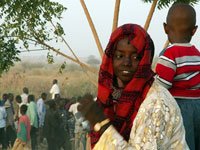











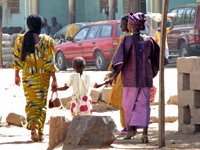


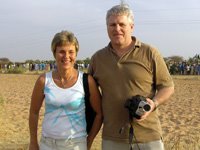

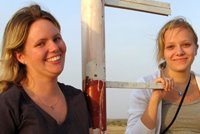





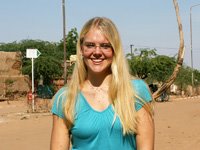
6 comments:
The world needs more wonderful people like you. I lived six years of my life in Africa. I miss it every day. I even lived in a Xhosa village in the Eastern Cape Province of South Africa for 8 months. My blog for Africa is www.tatamkulu.blogspot.com. My name is Jack Waldbewohner. My email address is ohomen171@gmail.com. I live in Pacifica, California.
Hi Jack! Nice of you to drop by! I really understand the "daily missing part". Either you love it or you just don't get it. Have you thought about moving back?
Ishtar
hi...thank you for your articles about Niger. it let us know more about Niger. but i still have some questions. would u kind enough to answer my questions?
i want to know how women's life there. what they ususally do in a day? i try to find it but i failed.
please to tell me if u know. it is very important to me. thank you very much.
best wishes!!!
Dear Nicky,
If you would let me know a little bit more about the specifics of what you are interested in, I could create a post about it. Right now, the subject is broad. What kinds of women are you thinking about? Poor, middle class, famers, women living in the cities, etc?
I could write a post about the women in Tanout and how they're living. I could also write something about the lower class women in Zinder. Let me know what you're interested in, and I'll have a look at the material available.
Cheers!
Ishtar
Great insight, Ishtar! You're right, I don't know much about Niger except what I hear in the news and it's never good. Thanks for providing some perspective!
Hello
It is my first time here. I just wanted to say hi!
Post a Comment